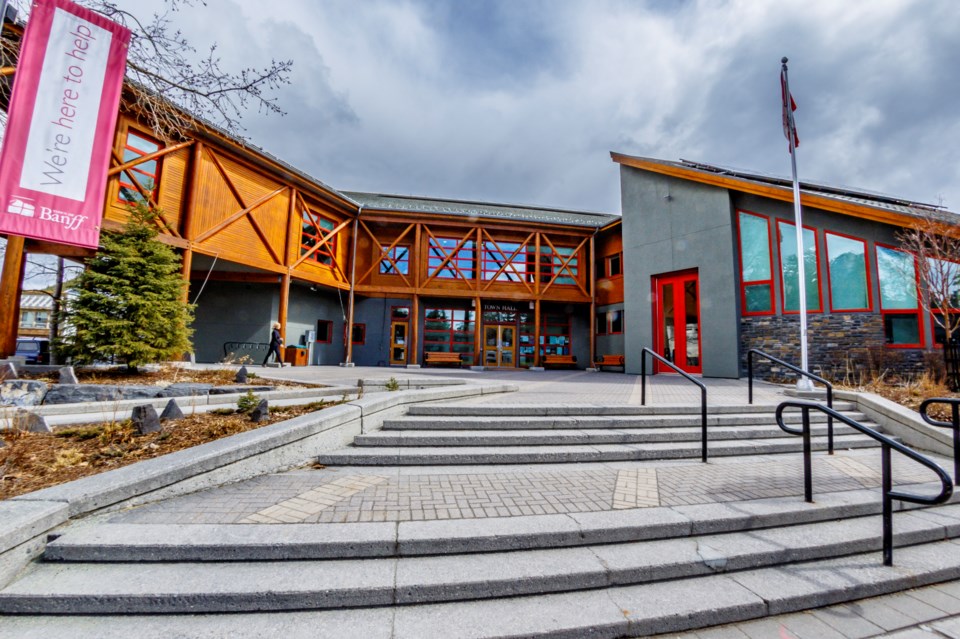BANFF – Banff’s popular environmental rebate program is being revamped, effective July 1.
After paying out almost $600,000 to residents over the past decade for different environmental rebate programs, Town council is rejigging some existing rebates and introducing new ones, like a $150 rebate for ventless clothes dryers, $500 for in-ground cisterns and $750 for heat pumps.
“We are really wanting to make sure this is a community effort when it comes to being as energy efficient and water efficient as possible,” said Mayor Corrie DiManno.
“I can appreciate that the technology has now caught up to the level that we were trying to incentivize so now we’ve got to take it to the next level for a lot of these.”
The environmental rebate program was first introduced in 2007 to encourage and provide financial incentives for residents to take steps to conserve water and improve energy efficiency in buildings.
Initially, the program offered rebates to replace toilets that use less water for flushing and a rebate for home energy audits, but grew to include other rebates for furnaces, windows, solar hot water heaters, doors, dishwashers, clothes washers, fridges, and rain barrels.
The rebates for rooftop solar panels and e-bikes are administered separately from this program.
Set at $150, a new clothes dryer rebate is also being implemented to encourage residents to buy ventless dryers that use less energy by recirculating air instead of venting it outside.
A new $750 rebate for heat pumps – small appliances similar to air conditioners that move heat from a source, amplify it and transfer it to where it is needed – is also being introduced.
Philipp Leberer, energy coordinator for the Town of Banff, said a common setup would be an air-source heat pump using electricity to extract heat from outside air and transfer it to the indoor air.
“This technology is highly efficient and for every unit of electricity used, a heat pump generates as much as three units of heat,” he said.
“While the efficiency drops in colder temperatures, over the last decades this technology has been improved and can now be used even in the cold Alberta climate.”
This technology, according to Leberer, will be important in moving away from fossil fuels for space heating.
“For now, heat pumps are more expensive than a conventional furnace or boiler, which is the reason for introducing the rebate,” he said.
Similar to this previous rebate, a new heat pump water heater rebate has been added at $500 per unit.
Leberer said the technology is similar to a heat pump used for space heating, but this appliance extracts waste heat from unoccupied indoor spaces such as mechanical rooms to heat hot water.
“Heat pump water heaters are normally installed to replace a conventional natural gas or electric water heater/boiler,” he said.
The rain barrel rebate is being kept at $50, but the Town of Banff is introducing a $500 rebate for underground cisterns.
Leberer said reducing the demand for potable water has a direct impact on municipal electricity usage.
He said these larger systems cost more to install but can have a more significant impact on water consumption by storing hundreds of litres of rainwater.
“Both rain barrels and cisterns are also providing the benefit of reducing runoff of water into the town’s stormwater infrastructure during rain events,” he said.
Based on administration’s recommendations, council has removed the existing rebates on Energy Star certified clothes washers, dishwashers and refrigerators, limiting eligibility to Energy Star Most Efficient models.
In addition, the toilet rebates have been reduced to a maximum of $50 per toilet, mainly because the requirements of the rebate are fulfilled by virtually all new toilets on the market.
Leberer said market research of products showed that out of 330 products listed, only 40 wouldn’t qualify for the rebate.
“This rebate remains an important tool to raise awareness of the impact of using old toilets on water consumption,” he said.
For the commercial sector, a new $100 electric hand dryer rebate is being offered to discourage businesses from using paper towels in restrooms.
Leberer said paper towels often are not diverted in the organic stream but end up in the general waste.
“Since paper towels consist of organic materials, greenhouse gas emissions in the form of methane are produced when these products are landfilled,” he said.
“Life cycle assessment studies of paper towels versus electric hand dryers show that the former has a significantly higher environmental impact than electric dryers.”
In the coming months, administration plans to come back to council with a proposal for an enhanced rebate program for deep energy retrofits for buildings.
Leberer said the goal is to encourage significant investment in building envelope upgrades throughout the community and is planned to be implemented together with the Clean Energy Improvement Program (CEIP) in early 2024.
“Administration expects to propose that the existing rebate program remain active to promote smaller upgrades and continue raising awareness of inefficient household appliances,” he said.
The environmental rebate program is funded through the environmental reserve, which had an opening balance of just over $1 million at the start of 2023. The source is entirely from franchise fees.




